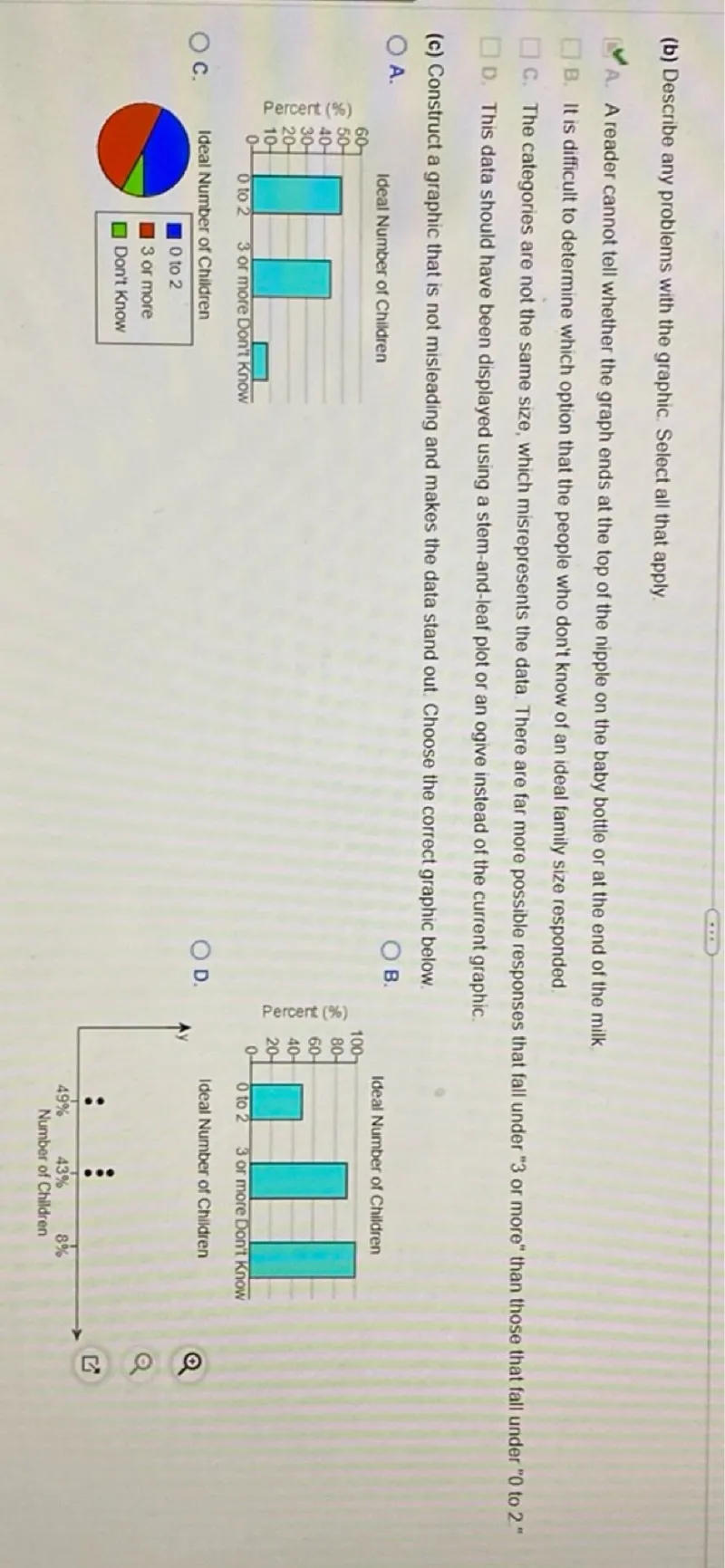Questions: (b) Describe any problems with the graphic. Select all that apply. (c) Construct a graphic that is not misleading and makes the data stand out. Choose the correct graphic below.

Transcript text: (b) Describe any problems with the graphic. Select all that apply.
(c) Construct a graphic that is not misleading and makes the data stand out. Choose the correct graphic below.





